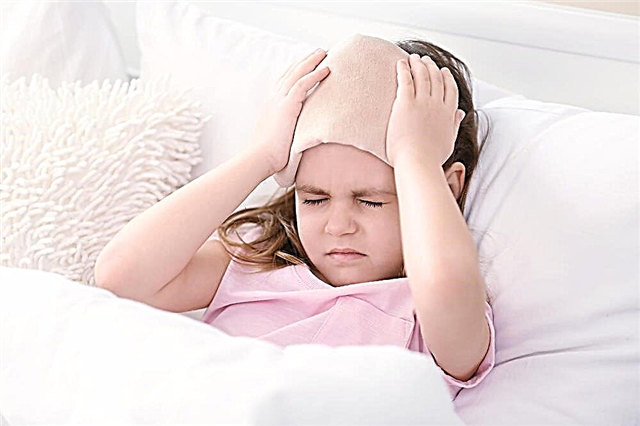No matter how unpleasant this action is, but parents will have to track the baby's stool. If the feces begin to smell sour, emit a fetid odor, the aroma of sour milk, then this may require urgent treatment. The sour smell of feces in a child happens, both due to an incorrectly selected mixture, and for other, more serious reasons.

Diaper change
Normal baby bowel movements
A baby's chair will tell a lot about his development. In the very first day, the baby must necessarily poop - meconium comes out. For the next 2 weeks, normal bowel movements may be green and sour. By the month, the shade becomes mustard brown and is normally preserved. Only the consistency changes with age.
Features of the chair with artificial feeding
The frequency of stool in artificial people is 1-2 times a day, it is usually not liquid, but denser. The shade is light yellow, brown. The stool resembles that of an adult.
Important! If the baby is suffering from constipation, then it is recommended to replace the mixture with one where there are lactic acid bacteria. It has a similar effect to kefir on the baby's gastrointestinal tract, improves peristalsis and intestinal motility.
Breastfed feces
Stools in breastfed babies have shades of yellow, yellow-green, or dark mustard. The consistency can be mushy, like thick sour cream. The smell can be sour. The frequency of defecation is 5-12 times a day, by three months - 4-6 times.
Additional Information. In order for the crumbs to have good digestion, the mother must adhere to certain nutritional rules.
Chair transformation from birth to one year
The child's feces change from birth to one year.
Transformation of feces of a child up to a year
| Child's age | Chair characteristics |
|---|---|
| From birth and within 2-4 days | Meconium. Dark in color, like a plum. The baby should poop on the second or third day after birth. |
| Up to two weeks of life | The feces are established. Changes from dark brown to brown, mustard brown, yellow-green or green. The consistency depends on the type of feeding. |
| From two weeks to two months | Frequent bowel movements, light brown color. The consistency is liquid. |
| From two months onwards | Normal bowel movements have a brown, golden hue. Frequency decreases with age. |
Possible reasons for deviations
If the baby's feces retain their yellow-green hue, but foam, mucus, and an offensive and sour smell begin to appear, then there are several reasons.

Bristol feces scale
Symptoms:
- If the baby is not capricious, does not cry, then this may be a variant of the norm. It is worth worrying if such a process drags on.
- When teething occurs, the stool often becomes thinner, and occasionally it can smell unpleasant. If the temperature rises, an infection is likely. Since the baby's immunity drops when teeth appear, it is vulnerable to all sorts of viruses.

Stools may change when teething occurs
- The baby does not have enough "rear" milk. The toddler sucks only the "front" milk rich in glucose. Mom should be given breasts on demand, and not on a schedule, do not drink water or even more juices, track the correct capture of the nipple during feeding.
- Pathology of the gastrointestinal tract. There are not enough enzymes to break down the "milk" sugar. In this case, you need to consult a pediatrician. It is also important to change the formula or switch your baby from breastfeeding to a lactose-free formula.
Additional Information. In the stool of an infant, deviations are also possible, which manifest themselves in the form of diarrhea or constipation. With proper treatment and preventive measures, these problems can be solved even at the moment of their embryonic state. So, constipation goes away when changing the mixture or when performing an abdominal massage. You should not delay the visit to the doctor and strictly follow the prescribed recommendations.
Causes of a putrid odor
When smelly feces appear in a child, doctors usually call the cause - dysbiosis. This means that rotting of protein products occurs in the intestine, and the composition of the microflora changes.
An unpleasant scent also indicates:
- inflammatory process in the intestine;
- slowed motility of smooth muscles;
- putrid indigestion;
- violation of the process of digesting food;
- rotavirus or other intestinal infection.

Prevention of intestinal infections
Note! If mucus is present in the feces, then this also indicates a pathology that manifests itself as a result of an allergic reaction.
When is it time to worry
There are such symptoms in the presence of a strong smell of feces in a child, which require the mandatory intervention of a doctor:
- Too profuse regurgitation, accompanied by vomiting;
- The kid is gaining weight very badly, can lose weight;
- Urination is very rare, urine is dark in color;
- The skin of the baby has lost its elasticity, begins to peel off;
- The fontanelle has sunk;
- The baby's mouth may smell: strong, unpleasant aroma;
- Fever, stool became watery, frothy, bloody, its frequency increased. At the same time, the baby does not sleep, does not eat. If defecation occurs more than 12 times a day, then this indicates a lesion of the small intestine and the presence of a bacterial infection.
Important! The baby's feces may contain blotches of a white tint, mucus, streaks appear, or the stool turns white. This indicates inflammation of the intestinal walls or infection with helminths.
What tests to take
When a putrid smell of feces appears in an infant, a number of laboratory tests should be carried out:
- visual inspection;
- a blood test to detect the presence of an inflammatory process;
- coprogram - feces study;
- bacteriological culture of feces to identify an infectious disease.

Stool laboratory tests
What Dr. Komarovsky says
Dr. Komarovsky, a Russian pediatrician, talks about the reasons for the pungent smell of feces in an infant:
- The sour aroma indicates the presence of fermentative dyspepsia. The baby suffers from diarrhea, flatulence and bloating. The bowel movements turn green.
- Offensive and pungent odor, pancreatic problems (possibly pancreatitis) are likely, or colon hypersecretion, cholecystitis, or celiac disease is present.
- Putrid aroma - the baby may have colitis or dysbiosis.
Changes in the smell of feces in infants are associated with physiological, alimentary or pathological reasons. If the appearance or aroma of feces changes, then you should consult a pediatrician to identify the symptoms of this pathology.



